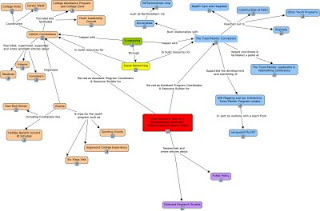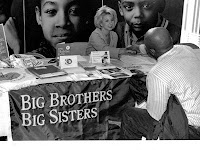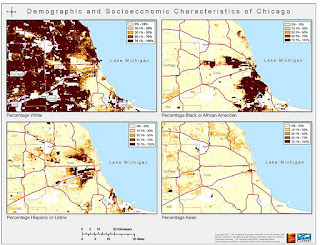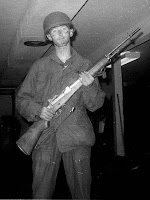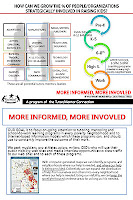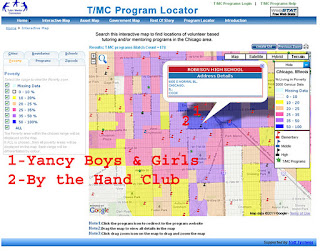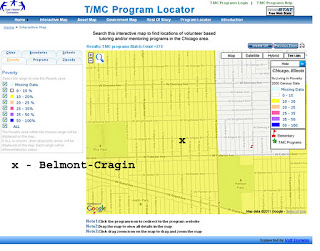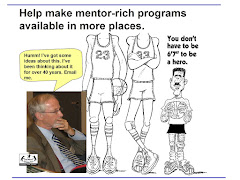Here's an email sent by one of the workshop presenters who will be sharing information at this Friday's
Tutor/Mentor Leadership and Networking Conference in Chicago. Ithttp://www.blogger.com/img/blank.gif's an example of how others can take a role in bringing people together at the May and November conferences.
--------------------------------
Hi Jerry and all, I share some news from Chicago about my workshop and
related interests. Perhaps we'll have ideas... Andrius
-----------------------
I'm leading a workshop at the Tutor / Mentor Leadership Conference this Friday, November 4, 2011, 9:40-10:45 am, at the Metcalf Federal Building,
77 W Jackson Boulevard in Chicago, Illinois.
http://tutormentorconference.org/agenda.asp
http://tutormentorconference.org/descriptions.asp
I ask us to spread the word and to think, What do we truly want to learn?
The conference is organized by Daniel Bassill. At this time, it costs $80. The goal is to connect leaders and supporters of volunteer-based tutoring, mentoring and education-to-career programs, especially in the Chicago area. I got involved because of my interest to make a living from a Learning Club.
Currently, I'm working part-time after school as a chess instructor for Chess Scholars http://www.chessscholars.com I'm also working online for
http://www.brainfuse.com to help students with their homework through a system of chat, white board and lessons. The advantage of that work is that I can likely do it from anywhere, including Lithuania.
However, I'd like to find a more meaningful way to make a living. I like the idea of a Learning Club where I would meet on an ongoing basis with twenty or more families to help them learn. They might pay $50 per month. I believe that we can develop an education system based on what people truly want to learn. I can also apply my creative skills to create learning materials in the Public Domain for Math, English and other subjects. If I could make a Learning Club work, then potentially there could be thousands or millions of people making a living from them and transforming our education system and even our economy.
I currently have one student, an adult learning math, and she's happy. The major obstacle is finding a place where such a Learning Club would be welcome, given that I wish to make a living from it.
I entitled my workshop, "Nurturing the Art of Self-Learning", but I think more to the point is the question, "What do we truly want to learn?"
Daniel Bassill's goal is to open up career opportunities for disadvantaged youth and young adults. I don't believe in careers, in the traditional sense, and I don't look to them as solutions for our society. Instead, I wish that we could learn what we truly want to learn, and learn alongside each other.
Likewise, I do think that we exhibit different levels of maturity as self-learners. Yet instead of formalizing roles of "tutor/mentor" and "student", I prefer to learn alongside each other, as much as possible, and work towards a culture where we are all learning and helping each other learn. One thing that I'm discovering as a chess instructor is that I can keep attentive 10 or more youngster of different grade levels (1st through 5th, say, or 3rd through 7th) by teaching as deeply, profoundly as possible, so that not everybody understands everything all the time, but their not bored, and the deep ideas grow in their minds like seeds, springing to life later on.
I think, therefore, that it's important for our own credibility that we ourselves be great learners. I will start with the 12 questions that I've asked independent thinkers in my years of organizing them (see below). I'll ask us to share our answers especially to two of them:
* What is your deepest value in life, which includes all of your other values?
* What is a question that you don't know the answer to, but wish to answer? and also a few more:
* What is your dream in life?
* What do you wish to achieve?
* What lessons can you share?
I'm making a poncho on which I'm painting a backdrop based on my diagram of some 40 questions asked by participants of Occupy Chicago. http://www.occupyme.net/chicago/wiki/Ask/Everybody I'll be able to include (with velcro) our "questions that we don't know the answer to, but wish to answer".
We'll discuss synergies that suggest themselves, including those that might relate younger and older people.
We'll also discuss obstacles that keep us from enjoying these synergies,
notably:
* We don't believe that we can ever answer the big questions. I'll argue otherwise, noting my directory of "ways of figuring things out". http://www.selflearners.net/ways/
* We don't believe that others could care about what we do. This is a big problem!
We'll discuss how art projects can help us engage each other.
* We can't make a living from such activity. And if we could, then others would refuse to help us be "profitable".
I hope to learn from our discussion, both online and at my workshop!
Thank you,
Andrius
Andrius Kulikauskas
ms@ms.lt
(773) 306-3807
http://www.selflearners.net
http://www.occupyme.net


